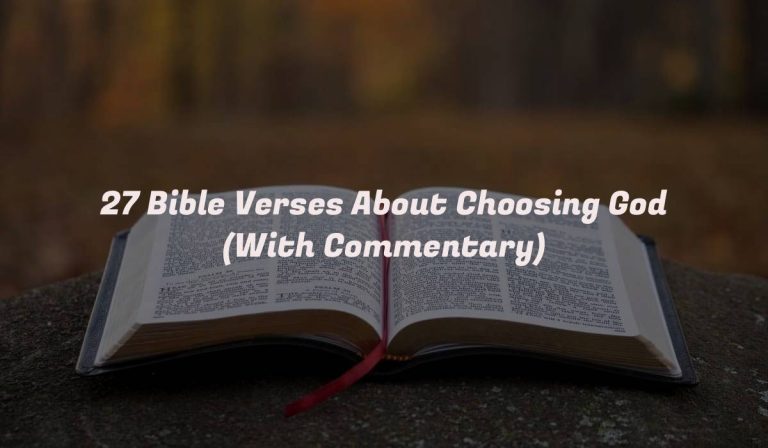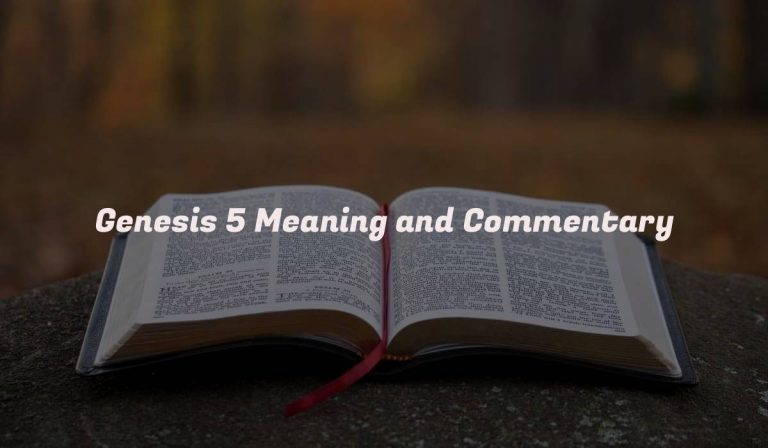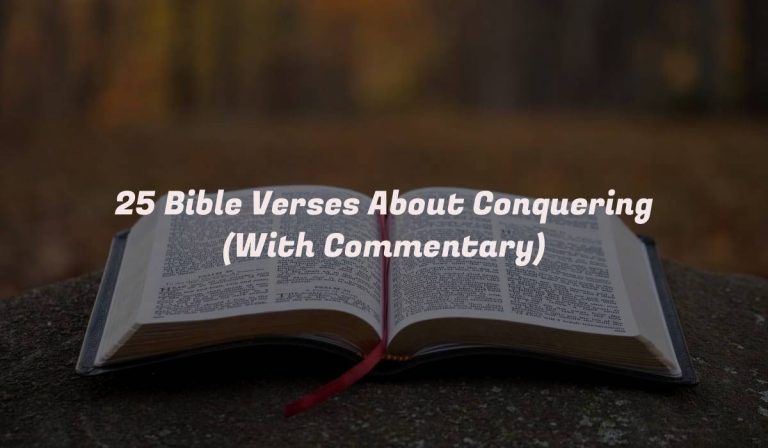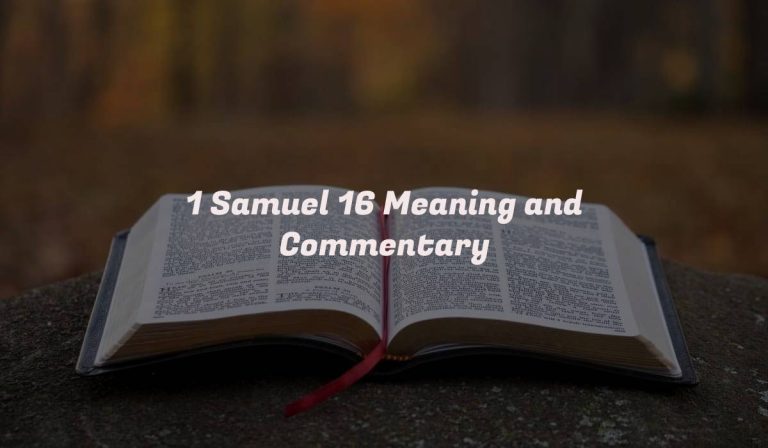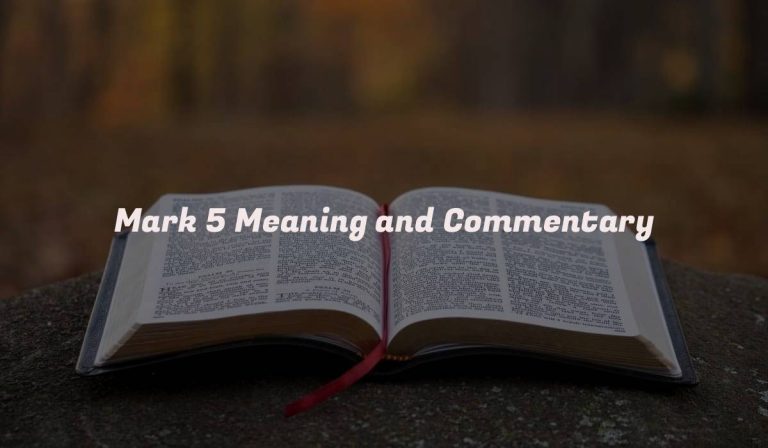25 Bible Verses about Drama (With Commentary)
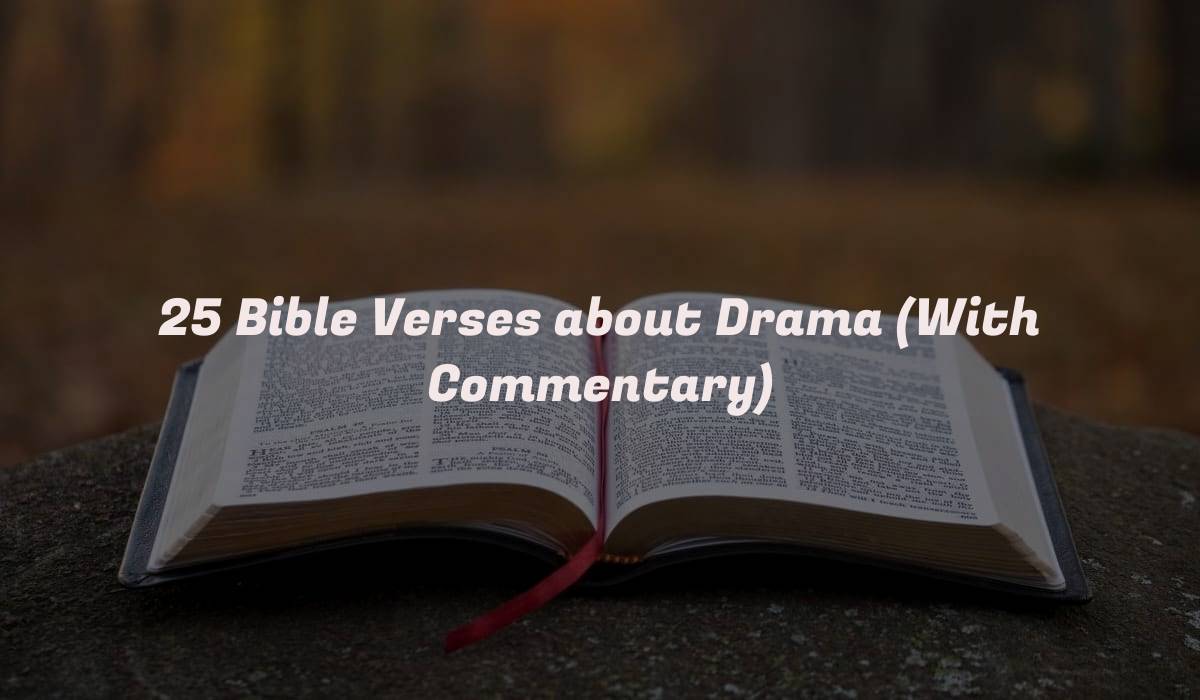
Drama can be pervasive in our lives, causing strife, confusion, and unnecessary pain. Discover how the Bible addresses this issue as we explore verses about drama. Uncover timeless wisdom on conflict resolution, wise communication, and the pursuit of peace that can transform our relationships and free us from the entanglements of unnecessary drama.
Bible Verses about Drama
Proverbs 26:20 (NIV)
“Without wood a fire goes out; without a gossip a quarrel dies down.”
Drama often arises from the flammable combination of gossip and contention. This verse from Proverbs vividly depicts how gossip fuels disputes, much like wood fuels a fire. The wisdom here encourages us to avoid engaging in idle chatter and rumor-spreading to prevent unnecessary drama, promoting an atmosphere of peace and understanding instead.
Romans 12:18 (NIV)
“If it is possible, as far as it depends on you, live at peace with everyone.”
Paul in his letter to the Romans urges believers to strive for peace in their interactions with others. This suggests a proactive approach to minimize drama, implicating that we are responsible for our part in ensuring peaceful coexistence. It’s a reminder to strive for harmony, acknowledging that while we can’t control others, we can certainly manage our own actions.
James 1:26 (NIV)
“Those who consider themselves religious and yet do not keep a tight rein on their tongues deceive themselves, and their religion is worthless.”
This verse from James underscores the power of words and the potential they hold for creating drama. It points out the importance of self-control, especially regarding our speech. If we claim to be religious but fail to regulate our words, we risk causing unnecessary drama and undermining our faith.
Ecclesiastes 7:9 (NIV)
“Do not be quickly provoked in your spirit, for anger resides in the lap of fools.”
Drama often blooms from the seed of hasty anger. This verse from Ecclesiastes admonishes against quick provocation, equating it with foolishness. It’s an encouragement to practice patience and emotional restraint, as reacting impulsively in anger often leads to unnecessary drama and conflict.
Proverbs 15:1 (NIV)
“A gentle answer turns away wrath, but a harsh word stirs up anger.”
In this Proverb, the correlation between our words and the amount of drama in our lives is evident. A soft, gentle response can diffuse tension and avoid drama, while harsh words have the potential to escalate situations. It highlights the power of mindful communication in maintaining a drama-free environment.
Matthew 5:9 (NIV)
“Blessed are the peacemakers, for they will be called children of God.”
Jesus’ sermon on the mount implores believers to be peacemakers, those who actively work to maintain harmony and prevent drama. Being a peacemaker aligns with the divine identity as a child of God, reinforcing the value of peace and the significance of averting drama in our relationships and environments.
Ephesians 4:29 (NIV)
“Do not let any unwholesome talk come out of your mouths, but only what is helpful for building others up according to their needs, that it may benefit those who listen.”
Paul, in his letter to the Ephesians, provides a guideline for communication to stave off drama. The verse emphasizes the importance of uplifting and constructive speech, which promotes a positive environment, thereby preventing the propagation of drama and conflict.
Proverbs 16:28 (NIV)
“A perverse person stirs up conflict, and a gossip separates close friends.”
The Proverbs warn about the drama that can result from perverse behavior and gossip. This verse suggests that integrity in character and control over one’s speech can serve as an antidote to drama, preserving relationships and promoting peace in the process.
Romans 14:19 (NIV)
“Let us therefore make every effort to do what leads to peace and to mutual edification.”
This verse calls for a conscious effort towards promoting peace and mutual edification, elements crucial in creating a drama-free environment. It implies that such actions require diligence, but the rewards of harmony and community building far outweigh the effort.
1 Peter 3:11 (NIV)
“They must turn from evil and do good; they must seek peace and pursue it.”
Peter instructs believers to actively seek and pursue peace. This pursuit involves turning away from evil and doing good, actions that effectively minimize drama. It serves as a powerful reminder that peace doesn’t just happen; it’s something we must intentionally strive for.
1 Corinthians 1:10 (NIV)
“I appeal to you, brothers and sisters, in the name of our Lord Jesus Christ, that all of you agree with one another in what you say and that there be no divisions among you, but that you be perfectly united in mind and thought.”
Paul urges the Corinthians towards unity in this verse, indicating that disagreement and division often give rise to drama. Striving for unity and agreement in speech and thought can mitigate potential conflicts and drama, fostering a spirit of harmony and cooperation.
Galatians 5:15 (NIV)
“If you bite and devour each other, watch out or you will be destroyed by each other.”
Paul, writing to the Galatians, uses metaphorical language to illustrate the dangers of internal conflict. This verse offers a stark reminder of the destructive potential of drama. By highlighting the damaging consequences, it encourages believers to prevent discord and instead seek peace.
Proverbs 17:1 (NIV)
“Better a dry crust with peace and quiet than a house full of feasting, with strife.”
This proverb values peace over abundance when the latter comes with strife, underlining that the absence of drama can be more satisfying than material wealth. It emphasizes the importance of maintaining a peaceful atmosphere, even if it means forgoing some luxuries.
Matthew 5:39 (NIV)
“But I tell you, do not resist an evil person. If anyone slaps you on the right cheek, turn to them the other cheek also.”
In this profound teaching, Jesus encourages a non-retaliatory approach to confrontation, suggesting a means to defuse potential drama. It proposes responding to offense with grace and humility, offering an alternative path that does not escalate conflict and cause additional drama.
Ephesians 4:26 (NIV)
“In your anger do not sin: Do not let the sun go down while you are still angry.”
This verse from Ephesians provides wise counsel for handling anger, a common source of drama. It suggests that experiencing anger is not inherently sinful, but acting on it inappropriately can lead to sin and drama. The advice to resolve anger before the day ends encourages swift reconciliation and minimizes the potential for ongoing conflict.
2 Timothy 2:23 (NIV)
“Don’t have anything to do with foolish and stupid arguments, because you know they produce quarrels.”
Paul’s counsel to Timothy is to steer clear of pointless arguments, as they are known to incite quarrels and, consequently, drama. This piece of wisdom points to the value of discernment in our interactions and highlights the need to avoid unnecessary disagreements that could lead to drama.
Colossians 3:13 (NIV)
“Bear with each other and forgive one another if any of you has a grievance against someone. Forgive as the Lord forgave you.”
This verse from Colossians highlights the importance of forgiveness in maintaining harmony. It recommends patience and forgiveness in interpersonal relations, actions that effectively curb the emergence of drama. The verse also reminds believers of the divine example of forgiveness set by the Lord, encouraging them to do the same.
James 4:1 (NIV)
“What causes fights and quarrels among you? Don’t they come from your desires that battle within you?”
James points out that internal conflicts often manifest as external drama, a keen observation on the source of disputes and quarrels. Recognizing and managing our inner desires can, therefore, help reduce conflicts, promoting peace and reducing drama in our lives.
Proverbs 10:12 (NIV)
“Hatred stirs up conflict, but love covers over all wrongs.”
The book of Proverbs contrasts the effects of hatred and love. Hatred incites conflict, thereby contributing to drama, whereas love has the capacity to heal and cover wrongs. This verse emphasizes the power of love in mitigating drama and fostering peace.
Proverbs 20:3 (NIV)
“It is to one’s honor to avoid strife, but every fool is quick to quarrel.”
Proverbs asserts that avoiding strife is an honorable act, while rushing into quarrels is foolish. By favoring patience and understanding over haste and hostility, one can reduce drama. The verse proposes wisdom as a way to prevent unnecessary conflict and the drama it brings.
1 Corinthians 13:4-7 (NIV)
“Love is patient, love is kind. It does not envy, it does not boast, it is not proud. It does not dishonor others, it is not self-seeking, it is not easily angered, it keeps no record of wrongs. Love does not delight in evil but rejoices with the truth. It always protects, always trusts, always hopes, always perseveres.”
Paul’s famous passage about love serves as a guide for behavior that counters drama. Love, as described here, defies the usual catalysts for drama such as envy, pride, anger, and keeping score of wrongs. Embodying these qualities can help one foster a drama-free environment, where truth, protection, trust, hope, and perseverance flourish.
2 Corinthians 12:20 (NIV)
“For I am afraid that when I come I may not find you as I want you to be, and you may not find me as you want me to be. I fear that there may be discord, jealousy, fits of rage, selfish ambition, slander, gossip, arrogance and disorder.”
Paul expresses his concern about various forms of drama that might have infiltrated the Corinthian church. This verse serves as a comprehensive list of behaviors to avoid: discord, jealousy, rage, selfish ambition, slander, gossip, arrogance, and disorder. Recognizing and avoiding these behaviors can significantly reduce the propensity for drama.
Galatians 5:22-23 (NIV)
“But the fruit of the Spirit is love, joy, peace, forbearance, kindness, goodness, faithfulness, gentleness and self-control. Against such things there is no law.”
This verse from Galatians highlights the virtues that help minimize drama. These qualities, described as the fruit of the Spirit, promote peace and harmony. By cultivating love, joy, peace, patience, kindness, goodness, faithfulness, gentleness, and self-control, one can create an environment less susceptible to drama.
Romans 15:5 (NIV)
“May the God who gives endurance and encouragement give you the same attitude of mind toward each other that Christ Jesus had.”
Paul’s prayer for the Romans is that they may embody the attitudes of Christ – one of patience, encouragement, and unity. Such attitudes reduce the likelihood of drama and promote an atmosphere of mutual understanding and cooperation. It underscores the importance of adopting Christlike attitudes in our relationships.
Matthew 12:36 (NIV)
“But I tell you that everyone will have to give account on the day of judgment for every empty word they have spoken.”
Jesus’ words here serve as a sober reminder that our words have weight, and we are accountable for them. This verse emphasizes the need for mindful communication, as reckless words can create unnecessary drama. Understanding the impact of our words can help us communicate more thoughtfully, reducing potential drama.

